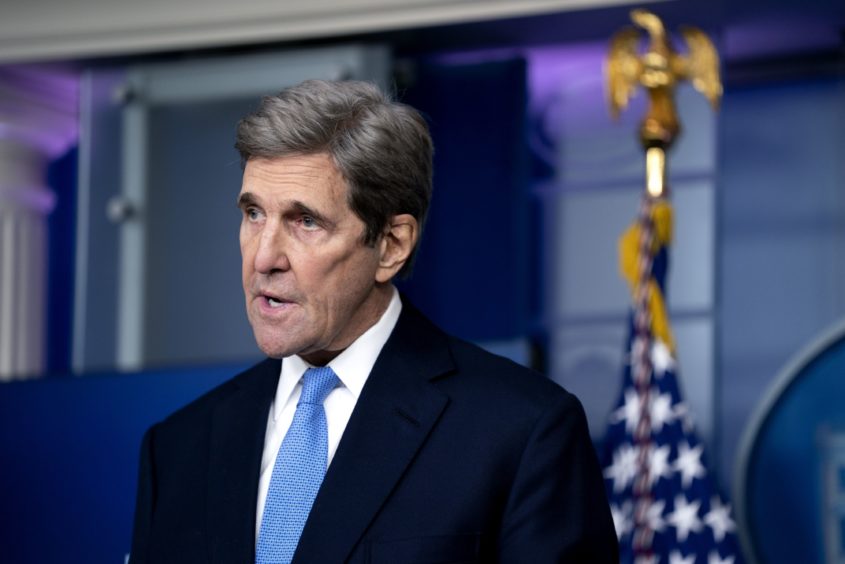
US climate envoy John Kerry criticized some US oil producers for not doing enough to combat global warming and singled out Chevron Corp. for particular scrutiny.
“We have no real evidence that they and a lot of others are doing what every company needs to do,” Kerry said at the Bloomberg Green summit at COP28 in Dubai on Tuesday. Oil and gas companies “ought to be leading the charge.”
Chevron did not join a decarbonization charter unveiled at the United Nations meeting that would commit it to slashing methane emissions to near-zero and halt flaring of natural gas by the end of the decade. The California-based company also hasn’t ponied up funding or technical support for a new World Bank grant fund to help rivals in developing nations stem their own methane releases.
Six other oil companies provided $25 million each and Exxon Mobil is working on a plan to offer on-the-ground training and other expertise, Kerry said.
Asked what more Chevron can do, Kerry was blunt: “Everything,” he said, adding that, for one thing, “you can’t be outside of this initiative.”
Chevron said in an emailed statement that it is “an active participant in COP” with representatives in Dubai “actively engaged in conversations to advance our shared goals of a lower-carbon future.”
Company spokeswoman Sally Jones stressed Chevron’s ongoing work to report emissions, to eliminate routine flaring by 2030 and reduce the carbon intensity of oil, gas and refining this decade. “Any balanced take on our record should include the facts,” she said.
COP28 outcome
Kerry offered some praise for oil industry commitments unveiled at COP28, including the charter pledge to cut some emissions, which was spearheaded by the United Arab Emirates.
In addition to methane targets, the 50 companies that signed up vowed to almost zero out carbon pollution from their operations by 2050. While that excludes the vast majority of their emissions, which are generated when the fuels they produce are burned, it’s an especially notable step forward for the 29 national oil companies that joined.
“A lot of criticisms have been leveled at the UAE, but the fact is that this is the first time ever that those companies have come to the table,” Kerry said. “What they’ve agreed to do is not enough, in my judgment, but I’d rather have them doing it than not doing it.”
It’s especially critical that oil companies end the flaring of natural gas, Kerry said, calling it both “stupid and dangerous.”
Separately, Kerry said he was “not worried” about Saudi Arabian Energy Minister Prince Abdulaziz bin Salman’s assertion his country would “absolutely not” accept language committing to a fossil fuel phase down as part of a final COP28 decision. Kerry also said he wasn’t concerned about or a bloc forming to thwart that kind of pledge.
The US supports “the phase out of all unabated fossil fuels,” Kerry said. A draft negotiating text released Tuesday morning offers alternative language calling for “accelerating efforts toward phasing out unabated fossil fuels” while “rapidly reducing their use so as to achieve net zero CO2 in energy systems by or around mid-century.”
The final landing zone is unclear, Kerry said.
“I’m not saying what it will be,” he said. “I’m saying we will find a way to do something that I think is realistic and finds the appropriate terminology and framework within which to do our job.”
Recommended for you
